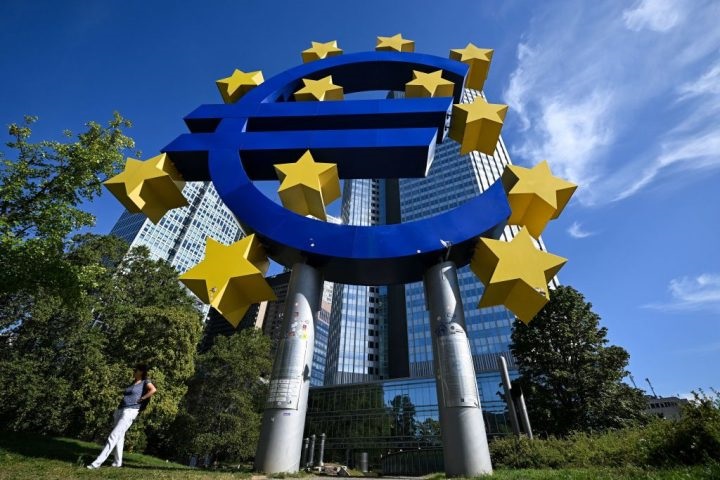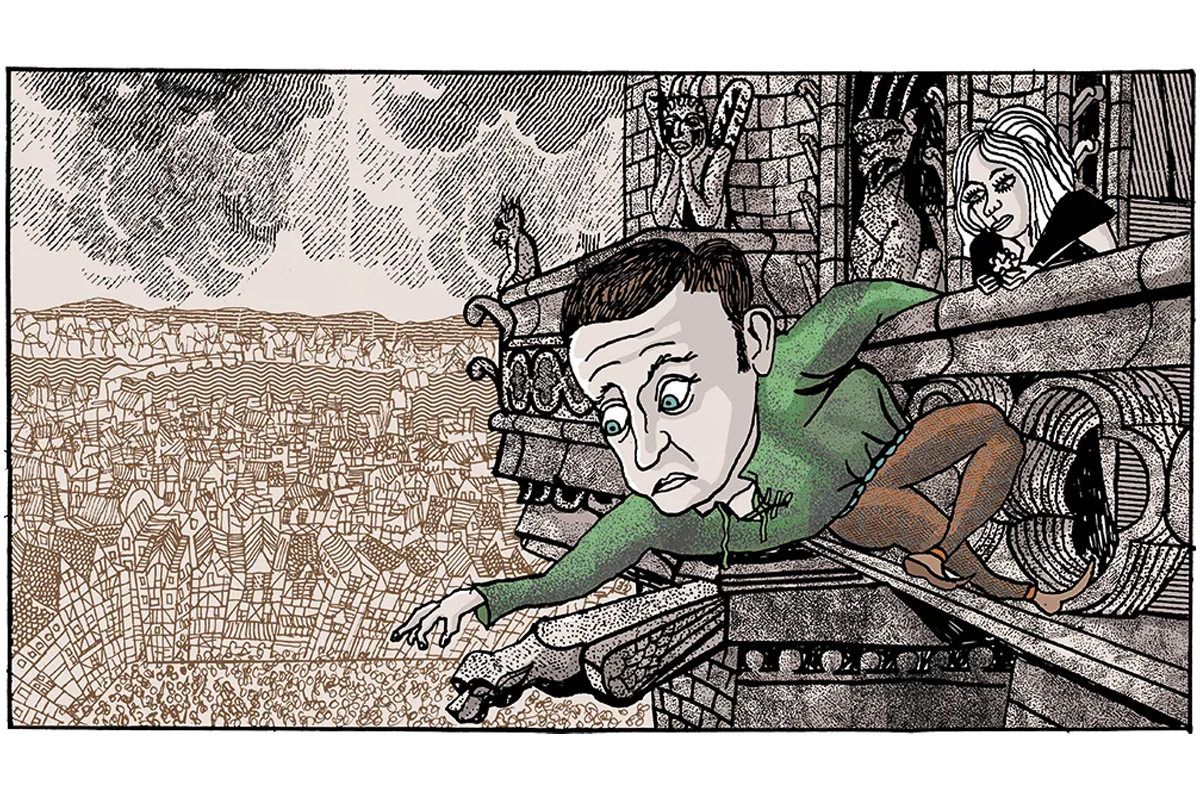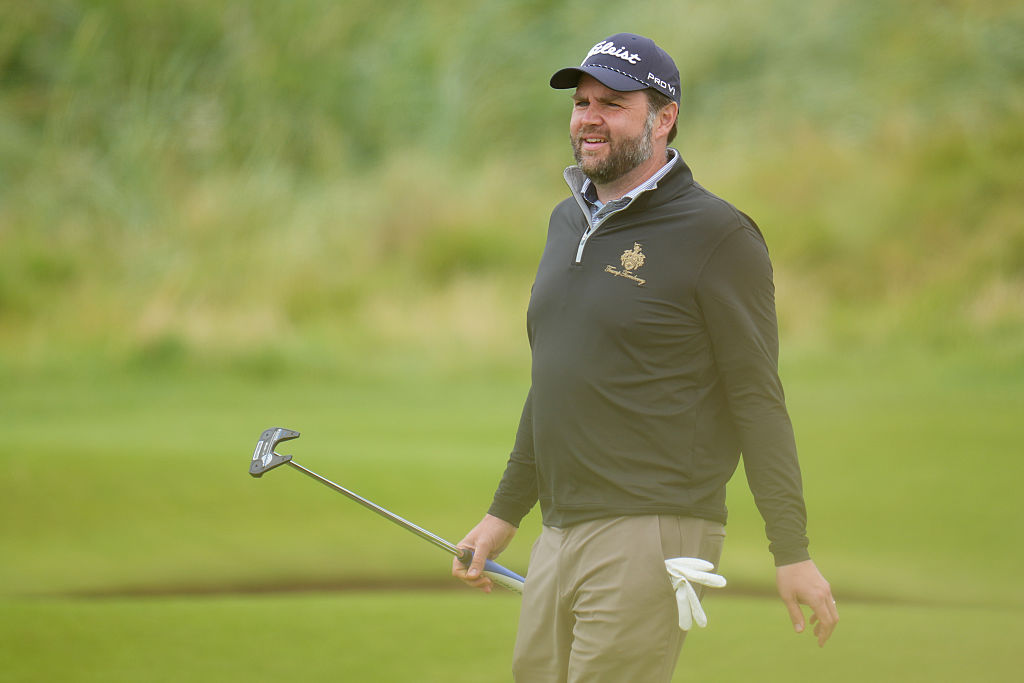In 2019, France’s president Emmanuel Macron famously called NATO “braindead.” Think what you will about the health of the defense alliance, but it is increasingly the European Union, not NATO, that seems paralyzed, unable to think more than just a step ahead.
The EU has been trundling along in this state for some time now. On the European Commission’s recommendation, EU leaders are due to make a decision next week about opening accession negotiations with Ukraine. Yet, little groundwork has been laid to turn even this initial step into a success. Hungary’s Viktor Orbán has already fired his opening salvo, refusing to even discuss the issue and threatening to derail the $50 billion fund set aside to assist Ukraine over the years 2024-2027.
For Eastern Europeans, even if they are concerned by Trump’s return, reliance on Berlin and Paris is an inadequate substitute
This is just the latest in a long line of own goals the EU has scored recently. Last month, just days before the election in the Netherlands which brought the Eurosceptic Geert Wilders to the forefront of Dutch politics, MEPs in the European Parliament narrowly approved a proposal to reform the EU’s treaties. The new rules, which many see as prerequisite for EU enlargement, will strengthen the parliament’s role — giving it the right to initiate legislation and co-legislate on the EU’s budget. It will also trim the number of areas in which the Council (of which the European heads of state are members) can decide policy by unanimity. However, it still needs said EU heads of state to approve it.
;768:[300×250,336×280,320×100];0:[300×250,320×100,320×50]”]Of course, therefore, the proposal is dead in the water. Nationalist governments in Hungary and Slovakia — not to speak of Italy and prospectively the Netherlands — are not going to give up their veto power over critical EU decisions.
It is true that prior enlargements of the bloc have been accompanied by treaty changes. It also remains the case that the most recent push to change EU treaties, initially through the failed constitution for Europe (2004) and then the Lisbon Treaty (2008) whose ratification required two referenda in Ireland, was acrimonious. Yet, it also happened under far more benign political circumstances than those that characterize European politics today.
Then there is the European aspiration at strategic autonomy. For understandable reasons, EU policymakers are petrified of the prospect of another Trump administration, which may well deal a death blow to transatlantic support for Ukraine and possibly even to NATO.
Yet, very little is being done, especially collectively, to prepare for such a scenario. The EU is lagging behind its pledge to produce a million artillery shells for Ukraine by March next year. Efforts to build a European defense industrial base are running into inevitable disagreements over how open such a system should be to friendly non-EU actors, such as the UK.
The common thread running through these examples is the outdated idea of the EU as a state-building project, meant to seize every opportunity to move closer to the ideal of a federal state. As these and many other setbacks show, the EU is now too diverse an entity to fit into such a straitjacket.
;768:[300×250,336×280,320×100];0:[300×250,320×100,320×50]”]For Eastern Europeans, even if they are concerned by Trump’s return, reliance on Berlin and Paris is an inadequate substitute for investing in the transatlantic partnership. Seen from Warsaw or Tallinn, it is better to take one’s chances with the Americans than to be left at the mercy of feckless Western Europeans.
Likewise, members of the EU don’t sufficiently trust each other or have an alignment of interests to justify abandoning the bloc’s largely intergovernmental nature and reliance on unanimity rule in favor of a stronger parliament and majoritarianism. Finally, while Orbán is posturing on Ukraine in bad faith, his opposition to accession talks is finding resonance with those who feel their interests are threatened by Ukraine’s accession — such as Poland’s farmers and truckers — not to speak of many in Western Europe.
There is an alternative path. Those in the EU who want defense and industrial cooperation should pursue it. Similarly, Poles and Balts shouldn’t be stopped from building leverage with Washington should they wish to by purchasing as many US-made weapons systems as possible. It is also time to accept the current EU rules instead of trying to rewrite them by pushing the continent into another pointless “constitutional convention.”
Finally, it is also time to be creative and act with urgency on Ukraine, instead of blindly following the template of past enlargements. There is no reason why, instead of framing membership as a binary process, Ukrainians cannot already be extended some of the most desirable perks of EU membership, such as market access, free movement of labor (which is mostly a reality already because of the war), or access to schemes such as Erasmus.
The solution to the EU’s current stasis does not lie in trying to reshape the EU into a one-size-fits-all utopia. It is time to accept that the EU institutions are just platforms for bargaining and cooperation on subjects that are of mutual interest to Europeans — not the future government of a budding superpower.
This article was originally published on The Spectator’s UK website.
;768:[300×250,336×280,320×100];0:[300×250,320×100,320×50]”]

























Leave a Reply